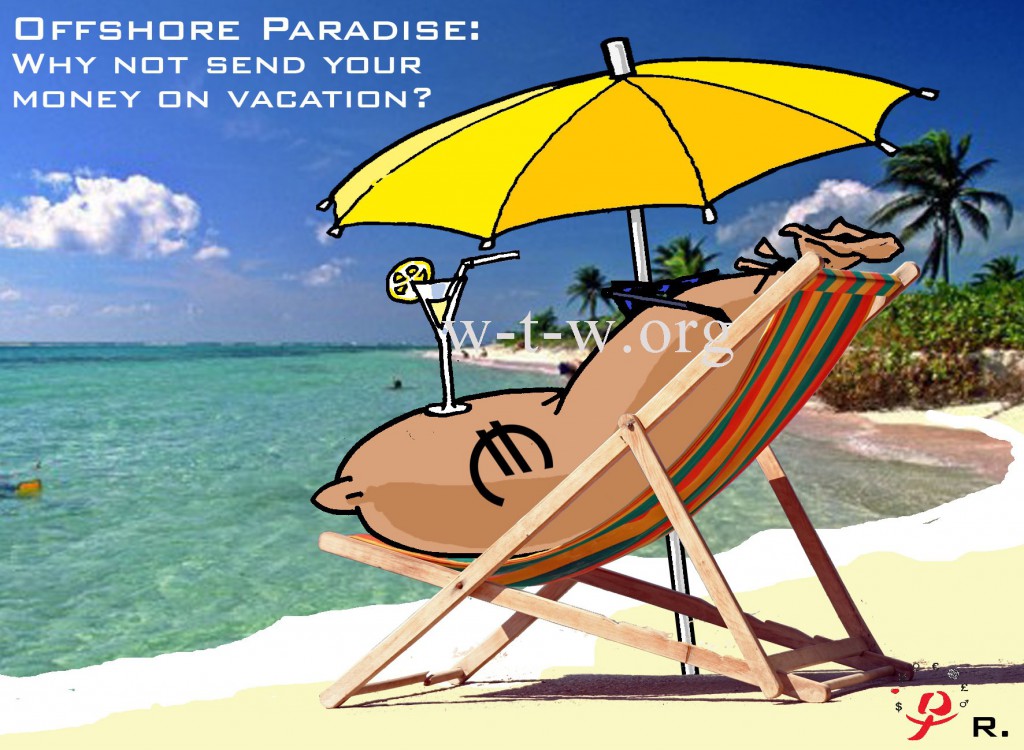Christie Smythe writes: Lawyer Patrick Poulin says he helped clients set up offshore corporations in the Caribbean. And that’s what he was working on when he flew to Miami from the Turks and Caicos last year to meet with two Americans who wanted him to invest $2 million from a real estate deal. Instead, they arrested him at the airport.
The clients, who went by the names of “Bob” and “Abraham,” according to Poulin, were really federal agents who were targeting him as part of a money laundering sting. Poulin eventually pleaded guilty to conspiracy and spent a year in prison.
The U.S. has since brought charges against at least four other businessmen working as “incorporators” — people who help clients establish offshore shell companies for tax planning or other reasons. The cases come amid a campaign by U.S. prosecutors to pursue suspect foreign incorporators in countries where corporate secrecy laws and the demands of extradition have stifled investigative efforts. The strategy: Lure the service providers out of their overseas havens to the U.S. with aggressive techniques such as undercover operations, wiretaps and stings, case filings show.
This new front in the long-running battle against money-laundering is opening as part of a broader U.S. crackdown on tax evasion. Taxpayers who seek amnesty under Internal Revenue Service disclosure programs are snitching on the incorporators, as well as naming Swiss banks and the bankers who aided them.
More than 50,000 U.S. taxpayers have avoided charges since 2009 in the offshore tax evasion crackdown; the program required them to disclose which banks and advisers helped them hide assets, according to the U.S. Internal Revenue Service..
The aggressive strategies are likely meant to send a message to incorporators that they’re being watched, said Jeffrey Neiman, a former federal prosecutor who worked on the groundbreaking 2009 tax evasion case against UBS Group AG and whose law firm represented an associate of Poulin.
“It plants the seed around the world that just maybe the government is listening to this conversation,” he said.
By luring incorporators to the U.S. to make an arrest, authorities also avoid often-complicated and lengthy extradition battles, and it’s easier to resolve a case, Neiman said.
About 30 Swiss advisers, for example, have been indicted in the U.S. since 2008, part of a broad probe of tax evasion and undeclared offshore accounts. At least 21 are still at large, among them, Josef Beck. The financial adviser was indicted in 2012 for allegedly conspiring with UBS to help Americans evade taxes. Yet he has never come to the U.S. to face the charges.
Prosecutors are moving up the chain and targeting even bigger operations. U.S. officials last year brought charges against Belize-based IPC Corporate Services founder Robert Bandfield, his employee Andrew Godfrey and several associates at brokerages and other firms. Prosecutors accused them of helping clients, including as many as 100 Americans, profit off of illegal stock trades and launder about $500 million.
An undercover investigator, posing as a corrupt stock promoter, paid the incorporator and his associates $9,600 for help setting up a corporate structure designed for illegal trading and money laundering, prosecutors said in court papers in Brooklyn. Bandfield and Godfrey told the investigator they might be able to return laundered funds on prepaid debit cards in $50,000 installments, the government alleged.
“We can make it so it’s not attached to you,” both men told the investigator during a 2013 meeting in Belize, according to prosecutors.
The government’s crackdown comes as offshore tax shells proliferate. President Barack Obama said in a 2009 speech that one Cayman Islands address had as many as 12,000 corporations registered to it. Bloomberg News found the number was closer to 19,000.

